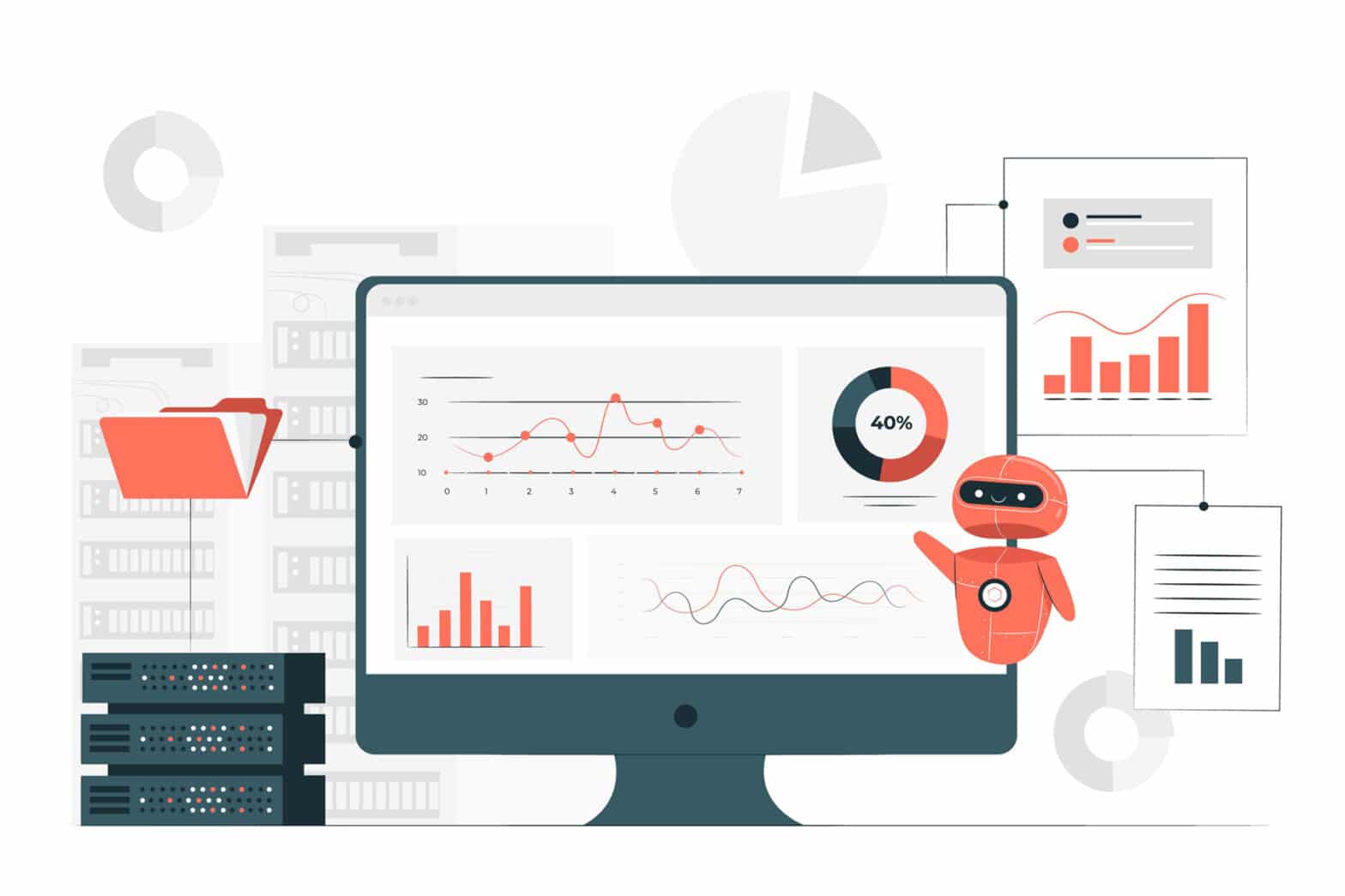AI in SEO Crisis Prevention
With digital marketing, the speed of change, search engine algorithm volatility, social media dynamics, and consumer sentiment can all create the perfect storm. A sudden decline in search engine rankings, a viral negative comment, or a social media crisis can all become a brand crisis with severe consequences.
Traditional crisis management in SEO and internet marketing has been a decade of response, hoping for the problems to have blown over by the time they acted. With the coming of artificial intelligence (AI), this reverses how brands now prepare for and ride out digital crises. Since AI can analyze vast amounts of data in real time, brands are able to anticipate issues, identify anomalies, and respond with a speed and accuracy beyond human capability.
This article will address howAI is transforming digital marketing and SEO crisis managementand offer a proactive solution for managing digital disruption.
The Anatomy of a Digital Marketing Crisis
A digital marketing crisis can appear in numerous forms and needs to be tackled immediately. It can range from the abrupt failure of search engine rankings because of Google’s algorithmchanges to consumer complaints, social outcry, or security compromise on a website.
The most prominent feature of any digital crisis is how easily and quickly it is generated and noticed. With millions of individuals online, problems which may have previously taken days or weeks to evolve can now accumulate over hours. They don’t just impact web traffic; they can damage brand reputation, reduce consumer confidence, and hurt revenue.
For instance, rank loss instantly due to an algorithm update leads to considerable losses in organic traffic, which can directly affect sales. Similarly, a viral social media entry or a negative review can lead to enormous brand damage and reputation loss, eroding consumer trust. Individuals must be aware of digital crises to develop anAI-based crisis management plan.
Why Traditional Crisis Responses Are Failing Fast
Traditional crisis management procedures in online marketing also have some negative aspects. Traditionally, as part of a crisis, the marketer must depend on human action to detect the problem, collect facts, and apply corrective actions. This would consume hours, if not days, depending on the gravity of the issue. In the meantime, the crisis will get out of hand as bad news gets around, search engine listings continue dropping, or consumer attitudes worsen.
Manual analysis tools are also responsible for the sudden fluctuations that are taking place in real time. For instance, when a brand witnesses an instant decline in traffic due to a Google algorithm update, it might be some time before the SEO teams understand why. The damage was already done before the necessary adjustments could be made. On the contrary, AI can process vast quantities of data virtually in seconds, recognize issues, and recommend remedies much more quickly than conventional methods.
One of the significant advantages of AI is this transformation from reactive to proactive crisis management.
How AI is Redefining Crisis Anticipation in SEO
AI’s ability to anticipateSEO crises is one of its most powerful applications. Machine learning technology can monitor search engine rankings, traffic, and keyword behavior in a way that allows it to notice changes before they become disasters. For instance, AI can pick up on small changes in keyword rankings or dips in traffic, which can signify something larger, an unseen issue looming. By measuring historical trends and monitoring patterns, AI can forecast the effect of future algorithm updates on specific keywords or websites’ pages.
Machine learning algorithms can also provide valuable insights into high-quality backlinks, detect keyword cannibalization, and uncover signs of content decay. By addressing these issues early, marketers can minimize the impact of SEO crises.
Artificial intelligence can also mimic what will affect the business from future algorithm updates, which allows brands to adapt to changes in search engine patterns.
Finding the Anomalies Before They Run Out of Control
Anomaly detection is the most critical crisis management area for AI. AI can monitor a website’s real-time performance statistics and alert the marketing team if there is any unusual change or surge that would indicate a problem.
For example, AI will automatically alert the marketing team to review if a website suddenly begins losing visitors or sees its bounce rate increase. It can even detect external attacks, such as spammy links or negative SEO attacks, that can damage a site’s ranking.
By identifying these crises in their nascent stage, brands can prevent them from being amplified. In second place, AI can monitor the subject brand on social media sites and blogs and alert marketers about likely PR disasters before a crisis gains unstoppable momentum. Identifying them early will cause response times to occur quickly and limit the extent of harm because a crisis is a crisis.
Smart Response Building: Material Against Deadline
When a crisis arises, the response must be formulated. With the rapidly evolving digital landscape, speed and accuracy are required. AI can be most helpful in helping brands craft timely, situational, and contextualized crisis responses. AI-driven tools can help draft crisis communications, adjusting tone and messaging based on context.
For example, when a user posts a negative viral review, AI can study the sentiment behind the review and assist the marketer in writing back a response stating the problem but in a sympathetic and professional tone.
Likewise, if a company is in social media flames, AI can create the right content to fit the brand’s values and appeal to the crowd. Through rapid experimentation with various messaging types and gauging the audience’s reaction, AI assists companies in tuning in on their response to seize what is at the top of their minds.
Social Listening and Sentiment Mapping at Scale
AI’s ability to hear social media at scale is a milestone in crisis management. Social media platforms are where internet crises often begin, and live monitoring of conversations is the key to staying on top of forthcoming issues. AI-driven social listening platforms can monitor brand mentions, track sentiment, and simultaneously identify emerging trends or complaints across multiple platforms.
They apply natural language processing (NLP) to screen social media updates’ tone and grade them as positive, negative, or neutral.
AI can then chart the emotional path of brand sentiment over time so marketers can catch up when something is out of control and act before it comes to a full-blown crisis. By monitoring influencer chatter, hashtags, and most popular topics, AI can further help find likely brand influencers who can steer the conversation in the right direction.
Real-Time Strategic Adjustment
During a crisis, there are instantaneous strategic needs. AI can give marketers instant actionable feedback regarding modifying their campaigns and messaging. For instance, AI can offer alternative approaches based on real-time data if a specific marketing approach is no longer practical for the audience.
AI can further assist brands in modifying content strategies by determining which topics, keywords, or channels are current in an instant.
AI can suggest implementing content optimization strategies during an SEO emergency to influence organic traffic, such as focusing on alternative keywords or freshening up existing content. During a brand’s social media emergency, AI can tell which kind of content or messaging holds the most significant potential to connect with the audience and restore trust.
Ethical Intelligence: Constraints and Obligations
As more are employed in crisis management, ethical concerns have to come into play. Although AI offers unparalleled ability to control online crises, it also inevitably carries risks. AI algorithms have the potential to perpetuate unconscious bias, disperse misinformation, or generate responses that lack a human touch. These dangers can be multiplied in a crisis, making the bad worse.
Brands need human control over AI-powered crisis management. Although AI can suggest and recognize patterns, human decision-making must override them to align the tone, message, and overall tone with brand values and situational variations.
To establish audience trust, brands must be transparent about using AI, especially in features like content generation and social listening.
Developing an AI-Ready Crisis Framework
Companies must establish an AI-ready framework to utilize AI to its full potential in handling crises. This framework involves empowering the marketing teams to use AI tools effectively, setting standard guidelines for man-machine interaction involving AI, and incorporating AI as part of the crisis management process. AI can’t replicate human decision-making but could be supported using fact-based suggestions and inputs.
Brands also need to create parameters for AI-aided intensification of a crisis, where human intervention can be triggered at important decision points. Periodic testing of AI-powered systems in mock crises will assist teams in optimizing their responses and better equipping them to deal with real crises. By creating a crisis management system with human intelligence and AI, brands can improve their capacity to respond to emergencies.
The Future of Digital Resilience in an AI-Dominated Age
As digital marketing has grown, AI will increasingly be at the center of crisis management. With the ability to forecast, sense, and react to digital crises in real time, AI is helping brands proactively remain ahead of the curve.
Digital resilience is no longer about surviving crises; it’s about using AI to anticipate and avert them, making instant corrections as necessary, and evolving perpetually to match the needs of the digital arena.
Those companies adopting AI-based crisis management will have a better chance to ride out disruptions, sustain customer confidence, and protect their online reputation. As AI technology advances, the latter’s role in crisis management can only increase, offering marketers increasing means of preserving the online brand image.
AI has revolutionized the way crises are managed in SEO and digital marketing. From crisis anticipation before the breakout to creating intelligent responses and monitoring social mood, AI enables brands to reply quickly, more effectively, and with increased accuracy.
In an era of progressively complex digital environments becoming common ground, incorporating AI-managed crisis habits will be pivotal for handling future issues.










